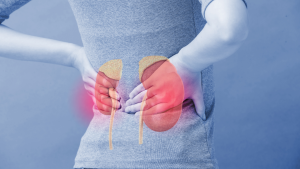Top Four Most Reported Cancers In India – CancerMitr
Cancer is often regarded as one of the deadliest and most feared diseases worldwide, evoking a sense of dread with its association with death or debilitating consequences. Tragically, a lack of awareness forces countless individuals to endure its silent progression, often leading to dire outcomes. Yet, the power of early screening and timely diagnosis cannot be overstated—it saves lives, reduces treatment costs, and offers a fighting chance against the disease. In this article, we uncover the top 4 cancers reported in India and their early warning signs, empowering you with knowledge that could make all the difference. Save this guide—it might just be the first step toward protecting yourself or your loved ones. Which are the top 4 most reported cancers in India? India is witnessing an alarming rise in cancer cases, with the disease emerging as a growing public health challenge. According to a research paper published in PubMed Central, the nation recorded 14,61,427 cancer cases in 2022 alone. Among women, breast cancer continues to dominate as the most reported type. The World Health Organization (WHO) highlights a sobering reality: one out of every ten Indians is likely to face a cancer diagnosis in their lifetime. The most common cancers in India are as follows; 1. Breast Cancer The breast is an organ located in the chest region with connective tissue, fat, and lobules. Women’s breasts are called mammary glands because they produce milk. Breast cancer is a condition where malignant tumours are detected in the breast’s lobules, ducts, and connective tissue. It is the most reported cancer among women in India. The mortality rate is high because nearly 60% of breast cancer cases are diagnosed at either stage III or IV. Early detection can save lives, and people should be aware of the following symptoms of breast cancer; 2. Oral cancer Oral cancer refers to the development of malignant tumours in the oral region like lips, tongue, cheeks, hard palate (bony part on the roof of the mouth), soft palate (muscular part of the mouth, located at the back), sinuses, and pharynx (hollow tube behind the nose). Oral cancer is linked to lifestyle habits like tobacco chewing and cigarette smoking. Men are more likely to develop this disease when compared to women, along with poor dental health and oral hygiene. India reports the highest number of oral cancer cases, followed by the US, China, Pakistan, and Bangladesh. Oral cancer is the easiest to treat, but the lack of awareness and access to resources leaves the person vulnerable. Early signs and symptoms are as follows; 3. Cervical cancer The cervix is the lower part of the uterus that connects to the vagina, forming a canal. Cervical cancer is a condition where a malignant tumour forms in the cervix. Women above 30 years of age are vulnerable to this condition. Human papillomavirus (HPV), a sexually transmitted infection (STI), is the leading cause of almost all reported cases of cervical cancer. Cervical cancer is also linked to the use of oral contraceptives (without proper medical consultation). According to a study published in BMC Women’s Health, more than 122,000 cases of cervical cancer are reported in India. Important signs and symptoms of cervical cancer are as follows; In most cervical cancer cases, women don’t show signs and symptoms until they are in stage III or IV of the disease. Therefore, the most reliable way cervical cancer or precancerous cells can be diagnosed early is to undergo a pap smear test. 4. Stomach cancer Stomach or gastric cancer is the third reported cancer in India and has killed more than seven lakh people yearly, according to a study published in 2018. The stomach plays the most important role in the storage, breakdown and digestion of food. Stomach cancer is a condition where a malignant tumour grows in any part of the stomach region. More men are diagnosed with stomach cancer when compared to women. Early signs and symptoms of stomach cancer include; In conclusion, Cancer is an unpredictable phenomenon that leaves a person in a state of uncertainty. All cancers can be effectively treated if detected at an early stage. Now, a lot of people are aware of cancer and self-examination, especially breast and oral cancer. CancerMitr has dealt with many breast cancer patients who have examined and felt lumps and other abnormalities. In addition, the CancerMitr preventive wing conducts awareness sessions for various corporations, communities and societies.


